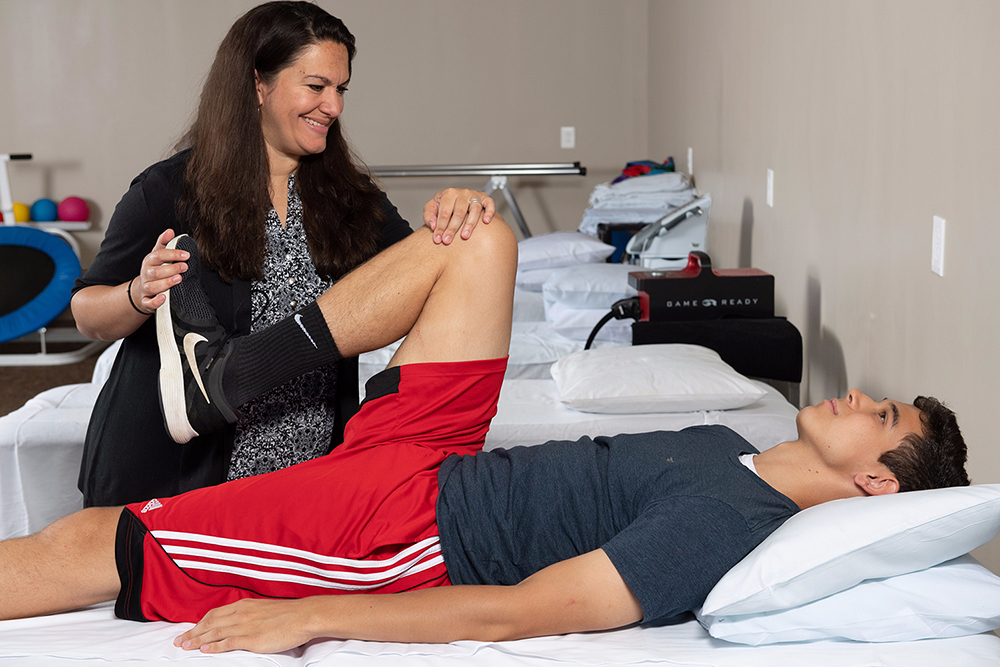Learn how rheumatologists diagnose and treat a range of musculoskeletal and autoimmune conditions...
Read More
If you’ve recently been referred to a physical therapist to help regain movement or strength following an injury or illness, you may feel nervous about what will be asked of you. You may even feel worried that physical therapy may worsen your existing pain.

Physical therapy is designed to help you manage pain, prevent future injuries and improve things like mobility and balance, among others. Your physical therapist will work with you to design an individualized treatment plan that addresses your challenges and defines your recovery goals. Everyone’s experience with physical therapy will be different depending on his or her health needs, but here are some things you can expect during your first visit:
Expect a Thorough Evaluation
You’ll be answering a lot of questions. Your physical therapist will want to carefully review not just what brought you in for therapy, but also your medical history. After getting your background information and summary of your symptoms, your physical therapist will perform a thorough evaluation. Make sure you’re dressed in clothing that doesn’t restrict your movement and allows your physical therapist to complete a thorough evaluation. The initial evaluation may include, but not be limited to, assessing your range of motion, strength, balance and overall functional mobility.
Expect to Set Some Goals
Your physical therapist will work with you to determine what goals you would like to achieve from physical therapy. For example, if your goal is to improve mobility, your physical therapist will provide ongoing assessment of your response to each treatment and will adjust your plan accordingly.
Expect Some Homework
You’ll be learning a lot about your condition at each appointment and will likely be taught, and receive, a written home exercise program to do between appointments to speed your recovery. It is important that you continue with your home exercise program per instructions provided by your physical therapist. Failure to show up for appointments or comply with your home exercise program can be a setback in your recovery process.
Expect to Come Back
Physical therapy is not a one and done thing. Have realistic expectations about your recovery time. Stay committed, engaged and educated about the process to maximize the benefits from each treatment session. Your physical therapist, in collaboration with your health care provider, will decide when you can be discharged and can provide you with additional instructions that will help improve your condition even after you graduate from physical therapy. Don’t compare your recovery to anyone else’s––every person’s body heals at a different pace.
To find out if you might benefit from physical therapy at Inspira Health Network, call 1-800-INSPIRA or visit us at www.InspiraHealthNetwork.org/rehab

Learn how rheumatologists diagnose and treat a range of musculoskeletal and autoimmune conditions...
Read More
Sports medicine and rehabilitation help athletes prepare for the spring season by improving...
Read More
Specialty doctors provide expert care for specific health concerns, ranging from ear, nose and...
Read More
The material set forth in this site in no way seeks to diagnose or treat illness or to serve as a substitute for professional medical care. Please speak with your health care provider if you have a health concern or if you are considering adopting any exercise program or dietary guidelines. For permission to reprint any portion of this website or to be removed from a notification list, please contact us at (856) 537-6772